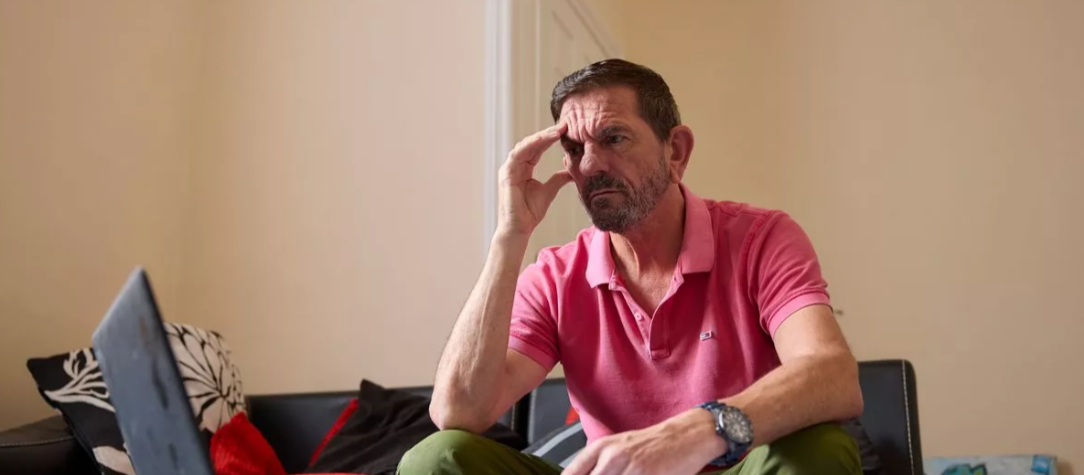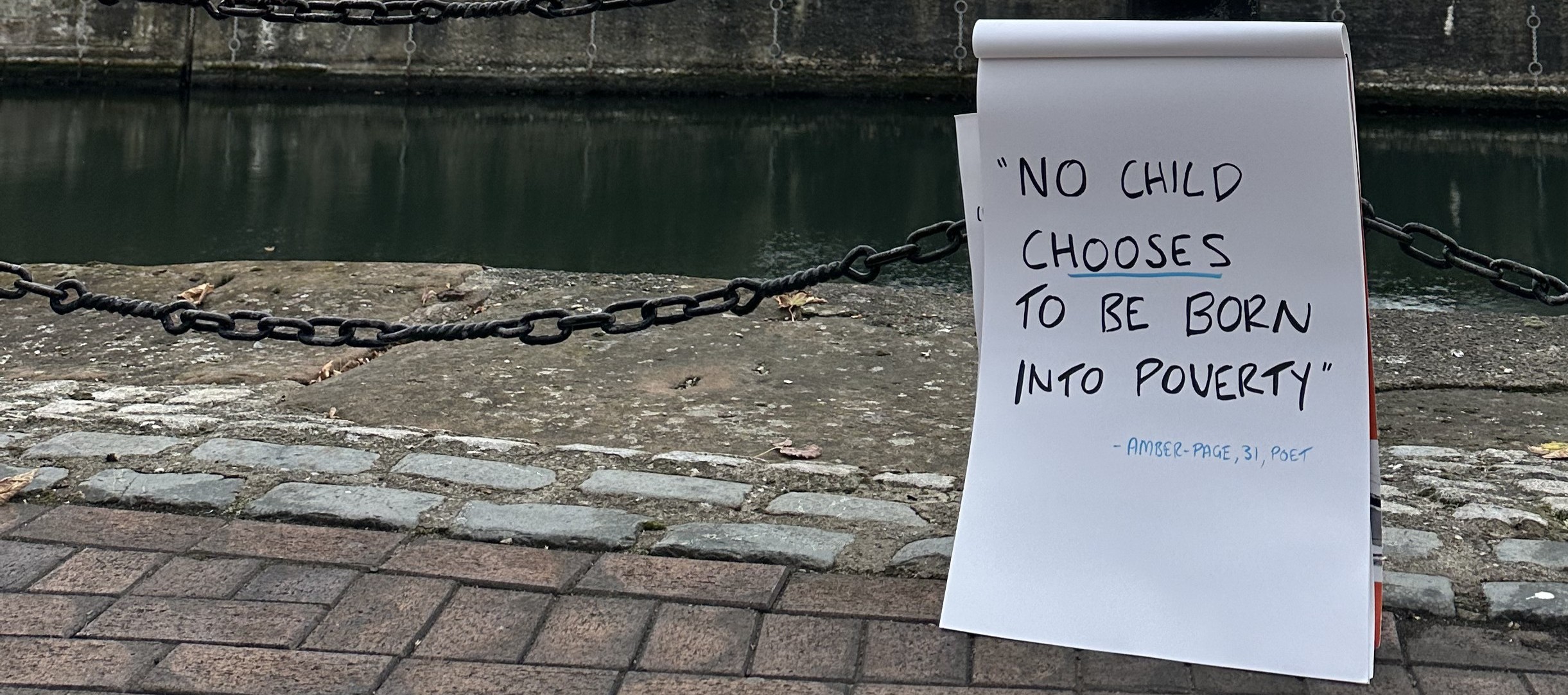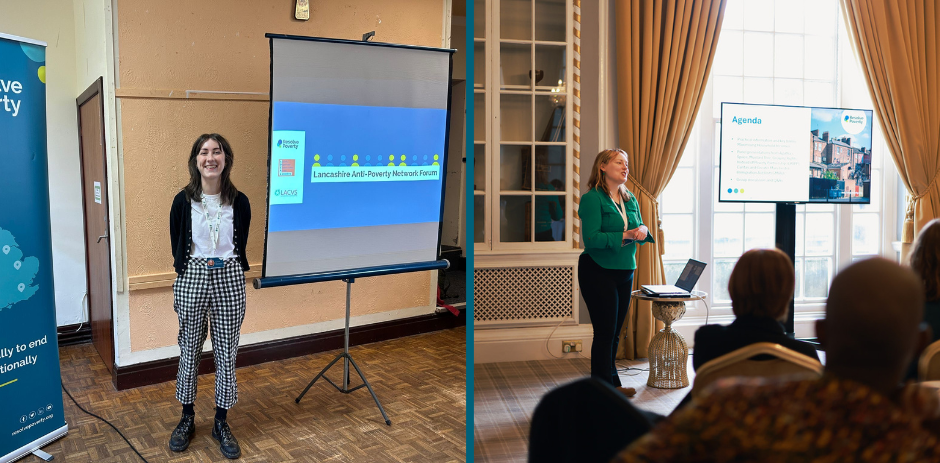By Tom Pottrill, Policy Officer at Resolve Poverty
Ahead of publication of the national Child Poverty Strategy, Resolve Poverty is pleased to launch new research, “Empower our places: how can further devolution support the national mission to end child poverty?”, with a focus on strategic and policy solutions for delivery of our proposed whole-system approach, as set out in Mission Critical (April 2025).
Our latest briefing, in collaboration with the Local Authorities and the Cost of Living Emergency project (University of York), advances novel proposals for specialist infrastructure support for local and regional government to fulfil their role in a whole-system approach. We also set out new proposals to reform local crisis support, devolved employment support and national social security. These parts of the system should play a critical role, independently and interdependently of one another, in delivering on the national mission to end child poverty.
How can we deliver a whole-system approach?
Foremost among a host of landmark policy reforms with potential to reshape how we deliver better outcomes with and for those experiencing poverty is the Child Poverty Strategy. It presents a key opportunity to facilitate the whole-system approach necessary to put rising poverty rates into reverse. To do so, central government must co-design a Shared Outcomes Framework with local and regional government, set legally binding child poverty targets and reform social security – beginning with abolition of the two-child benefit limit and overall benefit cap.
Likewise, central government must devolve powers, resources and multi-year funding settlements for local and regional government to sustain and innovate anti-poverty initiatives. This includes devolving access to relevant DWP and HMRC social security data, particularly for local and regional government to both introduce auto-enrolment in local welfare and strengthen welfare rights and debt advice services.
For the Child Poverty Strategy to deliver on its ambitions, central government should build on the approach of devolved governments and our work at Resolve Poverty by commissioning specialist infrastructure support for all local and regional authorities. Such support would create the conditions for more proactive and strategic responses to poverty, moving beyond crisis response, through a range of functions:
- Coordinate: Act as an umbrella body for local anti-poverty work
- Innovate: Support the design, innovation and delivery of effective local and regional anti-poverty strategies
- Educate: Deliver learning and development for all parts of the system
- Consolidate: Create multiple routes to share good practice at subnational level
- Evaluate: Support monitoring and evaluation of subnational anti-poverty activity
- Oversee: Develop the means for robust oversight and accountability for delivery on the Shared Outcomes Framework.
A more sustainable future for local crisis support
The advent of the Crisis and Resilience Fund offers fresh opportunities for local government to strategically support households in financial crisis, out of poverty. The Crisis and Resilience Fund should complement, not substitute for, adequate social security provision, the national Child Poverty Strategy and local anti-poverty strategies.
At a strategic level, this means a mandatory, dignified ‘cash first’ and advice-based approach to crisis support, ringfenced funding for Discretionary Housing Payments, protected real-terms funding increases for the Crisis and Resilience Fund, and local flexibility to support households with No Recourse to Public Funds. At an operational level, it means integrating Crisis and Resilience Fund delivery with welfare rights and debt advice services and preventative programmes, as part of local anti-poverty strategies, and proactively using data to identify at-risk households, monitor outcomes and continuously improve delivery.
Renewing the purpose of social security and employment support
National plans to “Get Britain Working” present an opening to shift away from a system that too often deepens hardship for those in poverty, whether in or out-of-work, and leaves local and regional government to mitigate the negative outcomes.
The current government has pledged to rescind the ‘ABC approach’ to employment support, which is ill-equipped to support economically inactive people into work and out of poverty. In its place, devolved employment support bodies must prioritise income maximisation, through emphasis on jobs that pay the Living Wage and integration with local welfare rights services, and embed co-production with those with lived experience of poverty and economic inactivity.
But poverty is not the preserve of those out-of-work. In part, this is a function of a social security system that fails in its most basic objective: to support socio-economically disadvantaged families with adequate income where work is insufficient. National and local government should, therefore, reform welfare conditionality regimes, ensure social security payments smooth out the irregular payment patterns that come with insecure work, and upturn high ‘marginal effective tax rates’ and steep ‘cliff-edges’ in social security that mean working more hours reduces low-income families’ net income.
Looking ahead
Our latest briefing responds directly to major policy reforms that have thus far been conceived disparately, in isolation of one another, by central government. It is vital that central government develops these reforms synergistically, in partnership with local and regional government and their public and VCSE sector partners, to deliver better outcomes for those on low incomes.
Only through a joined-up effort can we realise the ambition of a country where nobody grows up or lives in poverty. At Resolve Poverty, we will continue to play our part in getting there.
We were delighted to launch our new research at a Labour Party Conference 2025 event on tackling child poverty and health inequalities. Our Chief Executive, Graham Whitham, presented the research on a panel alongside Sam Rushworth MP and colleagues from Save the Children UK, Health Equity North and the University of York.
——————————————————————-
Want to hear about the latest poverty research, stories and events?
Stay on top of what you need to know. Sign up to our newsletter and join our powerful network of 3.9k+ professionals, volunteers and individuals actively engaged in tackling poverty across the UK.







